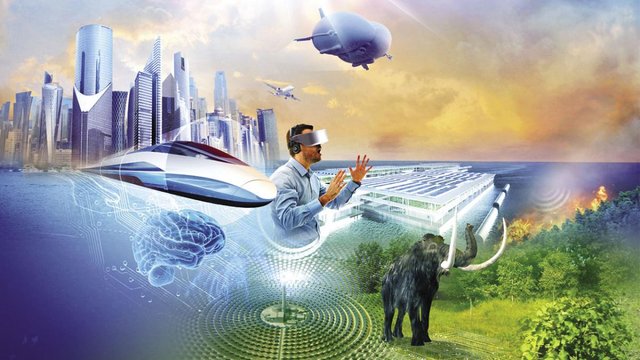
Exploring the Future of Earth
Introduction:
As inhabitants of this pale blue dot hurtling through the cosmos, the future of Earth holds both promise and uncertainty. From technological advancements to environmental challenges, humanity stands at a crossroads, tasked with charting a course towards a sustainable and thriving future. In this comprehensive blog, we embark on a journey into the realms of science, technology, and environmental stewardship to envision the potential pathways that lie ahead for our planet.
Environmental Sustainability:
The future of Earth hinges upon our ability to safeguard its delicate ecosystems and natural resources. As climate change accelerates and biodiversity dwindles, the imperative for environmental sustainability grows ever more urgent. From transitioning to renewable energy sources to implementing conservation efforts and sustainable land management practices, proactive measures are essential to mitigate the impacts of human activity and preserve the planet's ecological balance.Technological Innovation:
Advancements in technology offer transformative solutions to address the pressing challenges facing our planet. From renewable energy technologies and carbon capture innovations to breakthroughs in agricultural practices and waste management systems, cutting-edge technologies hold the potential to revolutionize how we interact with the environment and shape the future trajectory of Earth. Embracing innovation and fostering collaboration across sectors will be crucial in harnessing the power of technology for sustainable development.Space Exploration and Colonization:
As humanity ventures beyond the confines of Earth, the exploration and colonization of space emerge as frontier endeavors with profound implications for the future of our planet. From space tourism and asteroid mining to the establishment of off-world colonies, the expansion of human presence beyond Earth's bounds presents both opportunities and challenges. While space exploration offers insights into our cosmic origins and potential alternative habitats, it also raises questions about the ethical, environmental, and societal implications of spacefaring endeavors.Global Cooperation and Governance:
The future of Earth is inexorably linked to the collective actions of nations and global institutions in addressing shared challenges and pursuing common goals. From climate agreements and environmental treaties to efforts to combat poverty and promote social equity, global cooperation and governance structures play a pivotal role in shaping the trajectory of human civilization. Strengthening international collaboration and fostering inclusive decision-making processes are essential in navigating the complexities of an interconnected world.Sustainable Development Goals:
The United Nations Sustainable Development Goals (SDGs) serve as a blueprint for building a better future for people and the planet by 2030. From eradicating poverty and hunger to promoting clean energy and sustainable cities, the SDGs encompass a comprehensive framework for addressing the interconnected challenges of our time. Achieving these ambitious goals requires concerted efforts from governments, businesses, civil society, and individuals worldwide, underscoring the importance of collective action in shaping the future of Earth.
Conclusion:
As stewards of this planet, the future of Earth rests in our hands. By embracing innovation, fostering collaboration, and prioritizing environmental stewardship, we can chart a course towards a future where humanity thrives in harmony with nature. Together, let us envision a world where the beauty and wonder of Earth endure for generations to come, inspiring hope and resilience in the face of uncertainty.